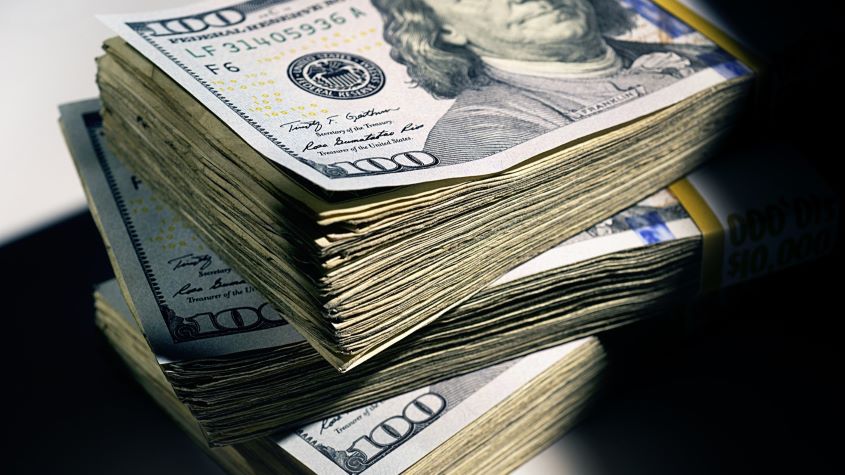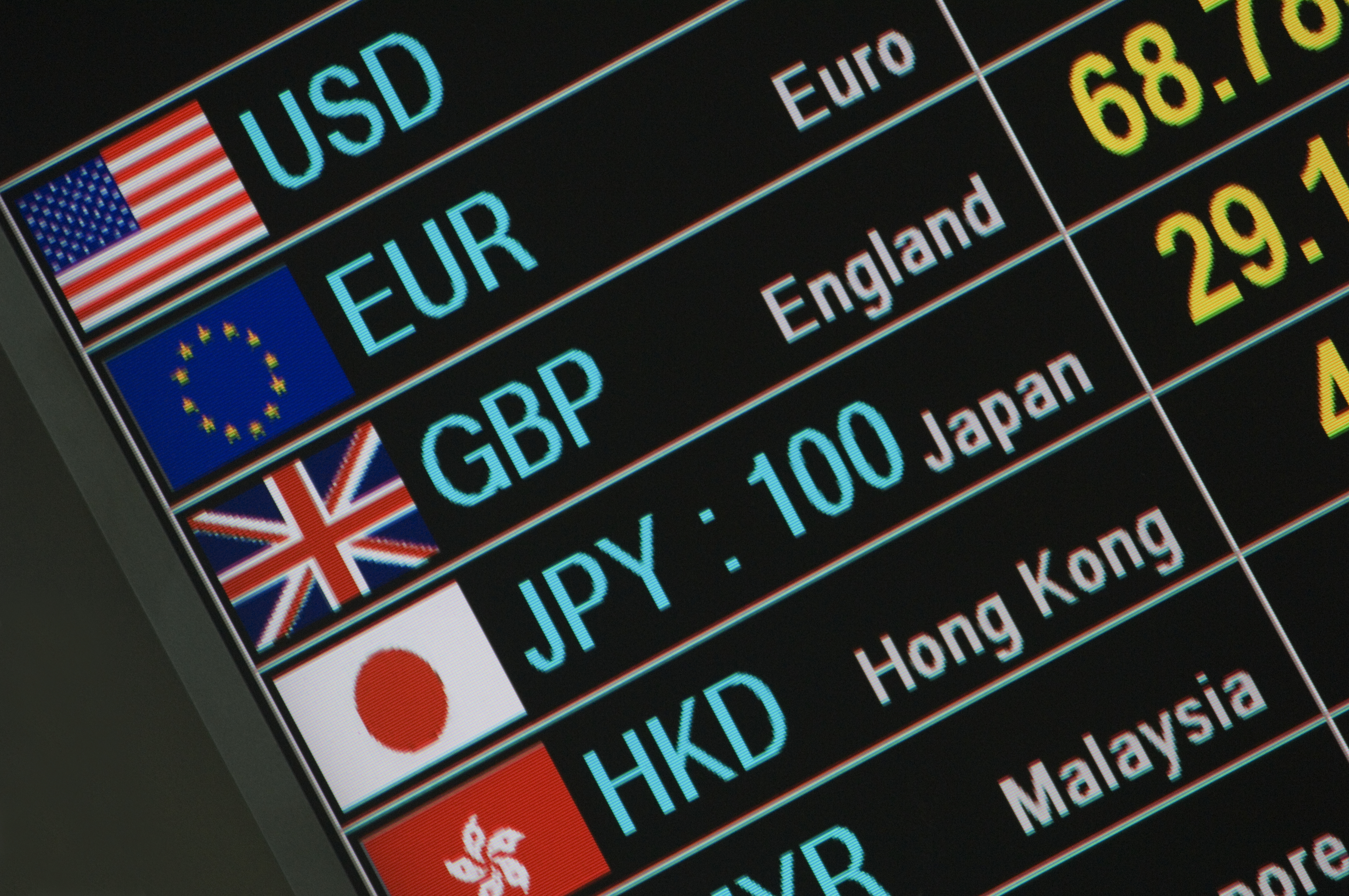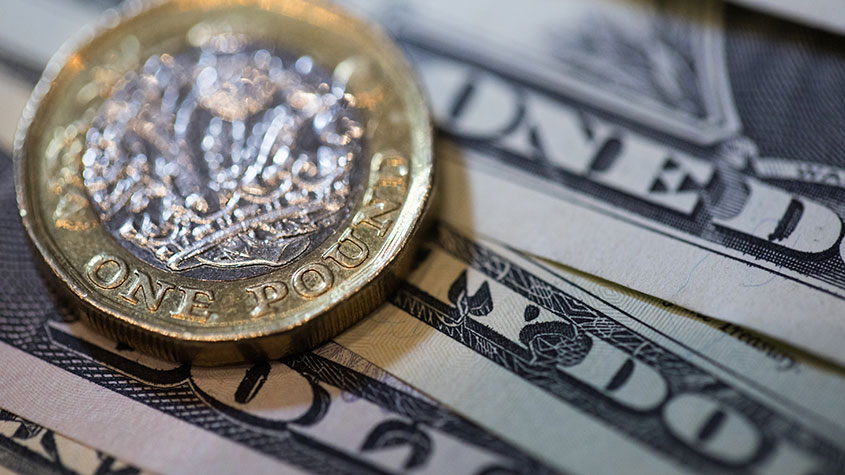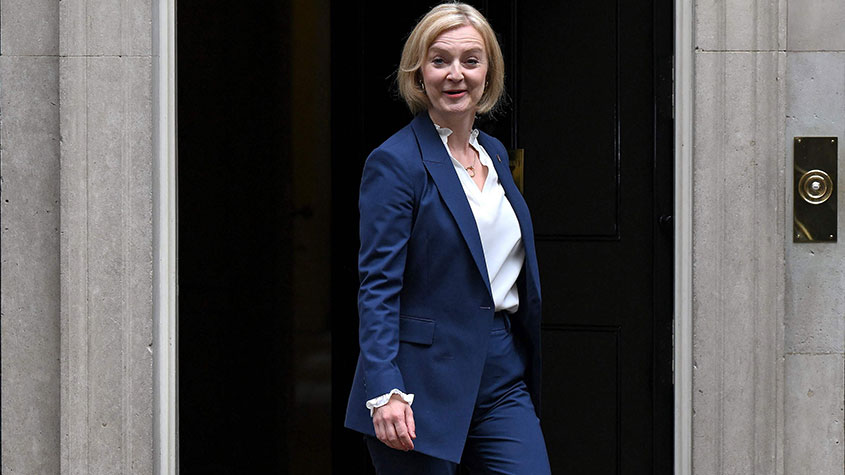Trading: Dunelm will keep growing, here's how to play it
Furniture retailer Dunelm surged during the pandemic, but its shares have since fallen back. But it is well placed to take more market share from rivals, says Matthew Partridge. Here, he explains how to play the Dunelm share price.


Get the latest financial news, insights and expert analysis from our award-winning MoneyWeek team, to help you understand what really matters when it comes to your finances.
You are now subscribed
Your newsletter sign-up was successful
Want to add more newsletters?
Covid-19 has shaken up the world of retail, creating both winners and losers. For the first 18 months it looked as if the home furnishing retailer Dunelm (LSE: DNLM) was one of the winners. Even though its shops were closed, it managed to shift quickly to online sales. It also benefited from people using the money they saved on travel and going out to improve their homes.
Between the end of March and October 2020, Dunelm’s share price nearly tripled. Even as late as last September it was still substantially above the level it was in February 2020. However, over the past year its share price has fallen by more than 40% and is now languishing well below the pre-pandemic level, even though sales are much higher.
Of course, there are rational reasons for investors to be concerned. With inflation outstripping increases in pay, households may choose to cut back on buying new furniture, or at least defer purchases until the economic situation improves.
Try 6 free issues of MoneyWeek today
Get unparalleled financial insight, analysis and expert opinion you can profit from.

Sign up to Money Morning
Don't miss the latest investment and personal finances news, market analysis, plus money-saving tips with our free twice-daily newsletter
Don't miss the latest investment and personal finances news, market analysis, plus money-saving tips with our free twice-daily newsletter
Dunelm’s management admits this could be a problem in the short run. Still, there are some reasons for optimism. First, the latest earnings figures suggest that, while there has been a small decline in the past three months, sales are holding up better than many people expected and are likely to come in above expectations.
Investing effectively
Management is confident that investment in digital platforms, as well as improving the quality of physical stores and expanding the range of products available, will help the company continue to win market share from rivals. Over the past year 85% of Dunelm’s sales growth has come from increasing market share, which is why it has consistently grown sales by double digits over the past two, five and ten years.
Crucially, this growth has not come at the expense of profitability. Operating margins been consistently around 10%-15% since 2016 and even rose in 2021. The company has also deployed its capital in an efficient manner, with a return on capital employed of roughly 30%. Despite investing in growth, it has consistently increased its dividend (with the exception of 2020 when it was suspended, like many other firms).
Despite this strong record, Dunelm is valued at just 11.8 times forecast 2023 earnings. The dividend yield is a compelling 5.6%. Encouraging fundamentals is one thing, but many people may still be wary about buying into a share that has fallen so much. However, there are some signs that Dunelm’s share price may have bottomed as it is now trading above its 50-day moving average. As a result, I’d suggest that you immediately go long at the current price of 878p at £3 per 1p. In this case, I’d suggest that you put the stop loss at 578p, which would give you a total downside of £900.
How my tips have fared
In the past fortnight my open long tips have put in a strong performance, with two out of the three tips rising. Telecoms firm Airtel Africa climbed from 146p to 171p, while equipment-rental company Ashtead rose from 3,785p to 4,142p. Fast-food chain Domino’s Pizza Group fell very slightly, from 276p to 275p.
The pending tips in both Hays Recruitment and sportswear retailer JD Sports rose above the levels at which you should go long on them, at 125p and 140p respectively. However, pet-supplies retailer Pets at Home and online-fashion retailer Asos still remain below the price at which you should start going long.
Overall, my long tips are making combined profits of £3,092. Unfortunately, my short tips didn’t do so well last week, with four of my six open tips rising.
Remote-medicine firm Teladoc advanced from $39.59 to $41.89, Chinese real-estate firm KE Holdings climbed from $15.10 to $15.53, and digital-currency exchange Coinbase also rose from $54 to $67. DWAC, the holding company for former US president Donald Trump’s social media venture, also increased,
from $29.45 to $31.
On the plus side, cinema chain AMC fell from $14.95 to $14.92 while online-marketing firm HubSpot also declined from $295 to $292. In total, my short tips are making a combined profit of £6,330, slightly down from £6,543 two weeks ago.
My short and long tips are making a combined overall profit of £9,635. I suggest that you close the positions in Domino’s and AMC, while cancelling the pending position in Asos. This leaves ten open tips: long positions in Airtel Africa, Ashtead, Dunelm, Hays Recruitment and JD Sports; and short positions in Teladoc, HubSpot, KE Holdings, DWAC and Coinbase.
I also suggest that you raise the stop loss on Airtel Africa to 135p (from 125p), while cutting the level at which you cover all the shorts as follows: KE Holdings to $25 (from $30); HubSpot, to $320 (from $325); Teladoc to $55 (from $60); DWAC to $45 (from $50); and Coinbase to $80 (from $90).
Trading techniques: how heatwaves affect the markets
The temperature has finally cooled down after shattering records last week, but what effect does extreme weather have on the market? Studies have shown that sunny weather is generally associated with stronger stock performance, perhaps because it makes people feel more optimistic. For example, a 2015 study by Gary Smith and Michael Zurhellen of Pomona College, California, compared the average stock returns on the US market days that were sunny (in New York) with those on cloudy days between 1948 and 2013. They found that the market did better on sunny days.
However, it appears the market is much less happy about high temperatures, which research suggests can actually hit returns. A 2019 study by Paul Griffin of the University of California, Davis; and David Lont of the University of Otago and Martien Lubberink of the Victoria University of Wellington, both in New Zealand, looked at the impact of extreme heat (as defined by the US National Oceanic and Atmospheric Administration) on share prices from 2008 to 2017. They found that the share prices of those companies that had their headquarters in the affected regions were significantly lower even 20 days after the beginning of the heatwave.
The same study also found that the declines were even bigger for particularly extreme or prolonged heatwaves, as well as those that coincided with a large amount of heat-related damage. Interestingly enough, the market doesn’t seem to be as concerned about periods of extreme cold, even if they are prolonged or destructive, as the same study found that such cold snaps had no statistically significant impact on share returns, either in a positive or a negative direction.
Get the latest financial news, insights and expert analysis from our award-winning MoneyWeek team, to help you understand what really matters when it comes to your finances.

-
 Why you should keep an eye on the US dollar, the most important price in the world
Why you should keep an eye on the US dollar, the most important price in the worldAdvice The US dollar is the most important asset in the world, dictating the prices of vital commodities. Where it goes next will determine the outlook for the global economy says Dominic Frisby.
-
 What is FX trading?
What is FX trading?What is FX trading and can you make money from it? We explain how foreign exchange trading works and the risks
-
 The Burberry share price looks like a good bet
The Burberry share price looks like a good betTips The Burberry share price could be on the verge of a major upswing as the firm’s profits return to growth.
-
 Sterling accelerates its recovery after chancellor’s U-turn on taxes
Sterling accelerates its recovery after chancellor’s U-turn on taxesNews The pound has recovered after Kwasi Kwarteng U-turned on abolishing the top rate of income tax. Saloni Sardana explains what's going on..
-
 Why you should short this satellite broadband company
Why you should short this satellite broadband companyTips With an ill-considered business plan, satellite broadband company AST SpaceMobile is doomed to failure, says Matthew Partridge. Here's how to short the stock.
-
 It’s time to sell this stock
It’s time to sell this stockTips Digital Realty’s data-storage business model is moribund, consumed by the rise of cloud computing. Here's how you could short the shares, says Matthew Partridge.
-
 Will Liz Truss as PM mark a turning point for the pound?
Will Liz Truss as PM mark a turning point for the pound?Analysis The pound is at its lowest since 1985. But a new government often markets a turning point, says Dominic Frisby. Here, he looks at where sterling might go from here.
-
 Are we heading for a sterling crisis?
Are we heading for a sterling crisis?News The pound sliding against the dollar and the euro is symbolic of the UK's economic weakness and a sign that overseas investors losing confidence in the country.

